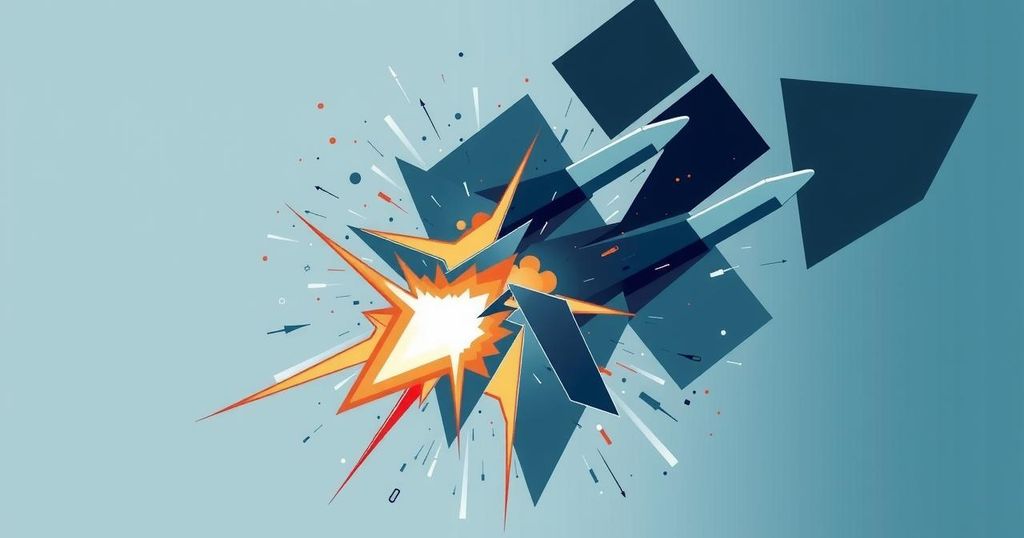Politics
ANDY BAKER, ASIA, AUSTRIA, CIA, DAVID WARRINGTON, EUROPE, FOX NEWS CHANNEL, IAEA BOARD OF GOVERNORS, INTERNATIONAL ATOMIC ENERGY AGENCY, IRAN, NATIONAL SECURITY, NORTH AMERICA, NUCLEAR POLICY, NUCLEAR WEAPONS, POLITICS, RAFAEL GROSSI, RATCLIFFE, ROD LAMKEY, TRUMP ADMINISTRATION, U. S, UNITED STATES, VIENNA, WASHINGTON
Jamal Walker
0 Comments
CIA Chief Informs Lawmakers of Significant Setback to Iran’s Nuclear Program
- CIA Director John Ratcliffe briefs lawmakers on Iran’s nuclear setback.
- American strikes destroyed Iran’s metal conversion facility, key to nuclear arms.
- The strikes may have set back Iran’s nuclear ambitions by years, officials report.
- Intelligence assesses that much of Iran’s enriched uranium is buried under rubble.
- Rafael Grossi states capabilities remain for Iran to restart operations.
CIA Director Briefs Lawmakers on Iran’s Nuclear Setback
In a significant intelligence briefing, CIA Director John Ratcliffe informed U.S. lawmakers that American military strikes have severely damaged Iran’s nuclear capabilities, specifically its metal conversion facility. According to an anonymous official speaking on the matter, the assessment indicates that these strikes have set back Iran’s nuclear program by several years, effectively stalling Tehran’s ambitions for nuclear weapon development. Amid heightened tensions and a recent ceasefire with Israel, Ratcliffe laid out the strategic implications of the military campaign during a classified session, underscoring the severity of the damage inflicted upon Iran’s nuclear infrastructure.
Understanding the Impact of Strikes on Iran’s Nuclear Program
Ratcliffe’s analysis, reported to Congress, revealed that while much of Iran’s enriched uranium may still remain buried beneath the remains of key nuclear sites such as Isfahan and Fordo, the destruction of the metal conversion facility limits Iran’s immediate capacity to manufacture a nuclear bomb. This facility, crucial for transforming enriched uranium gas into metal, was located at Isfahan—making its obliteration a critical blow to Iran’s nuclear manufacturing capabilities. Rafael Grossi, head of the International Atomic Energy Agency, weighed in on CBS, indicating that while certain uranium treatment facilities have suffered significant damage, some still remain operational, hinting at the persistent risks if Iran chooses to resume enrichment activities. Grossi emphasized that the complete assessment of damage depends on Iran allowing inspectors access to the sites.
Ongoing Concerns Over Iran’s Nuclear Knowledge and Capability
As the aftermath of the U.S. and Israeli strikes is scrutinized, President Donald Trump and his administration insist that Iran’s nuclear program has been effectively “obliterated,” a sentiment echoed by Defense Secretary Pete Hegseth. However, not all assessments align—U.S. Defense Intelligence Agency reports suggest significant but not total damage to the key facilities, with some capabilities still intact. Secretary of State Marco Rubio reiterated the importance of the destroyed metal conversion facility, arguing that without it, Iran’s path to developing a nuclear weapon has been obstructed. While reports suggest Iran’s nuclear program suffered a formidable setback, analysts remain cautious, noting that the technical knowledge necessary for uranium enrichment and weaponization remains present among Iranian scientists and engineers, leaving the door open for potential future developments.
The recent military strikes on Iran’s nuclear facilities have delivered a significant setback to the country’s nuclear ambitions, particularly concerning the destruction of its metal conversion site. However, assessments reveal that while the physical infrastructure has suffered, the underlying scientific know-how still poses a potential threat. Diplomatic solutions remain critical as officials emphasize the need to prevent Iran from reviving its nuclear pursuits in the future.




Post Comment